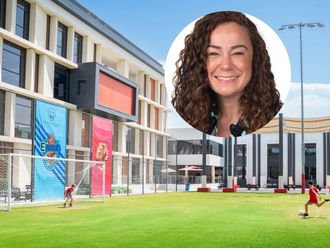DUBAI
In April 11-year-old Loujain Hussain was left comatose from a severe brain haemorrhage after being attacked by four boys in an Abu Dhabi school playground. Today she struggles to get back into the school system.
Victims of childhood bullying often end up paying a price well into their adult lives. We may not be able to protect our children from everything but we can help them deal with life’s issues. Parents, teachers and society can stop a child from carrying the scars of bullying but we need to be alert.
Dr. Mohammad Tahir, a psychiatrist at The City Hospital, in Dubai, advises parents to keep a keen eye for any changes in their child’s behaviour. “Weight loss due to a decreased appetite, depression, agitation, refusal to attend school and a lowered self-esteem are all symptoms that may indicate a child is being bullied,” he said. Chronic bullying may also prompt psychosomatic aches that cannot be healed by traditional medicines as they are psychologically triggered by an increase in stress.
When exposed to frequent stressful situations, such as bullying, the brain responds by releasing serotonin, an imbalance of which causes depression, and stimulating the adrenal glands, which releases adrenaline. The nervous system in turn releases norepinephrine, another stress hormone. All of these changes may trigger adverse effects on the body.
“The victim may then start complaining from headaches or backaches that are psychosomatic and not caused by any physical condition. It is essential that bullied victims get fully evaluated by a psychiatrist or psychologist to determine the level of impact bullying has had on them and to seek necessary treatment.”
The level of impact also depends on a number of variables, which include age, gender and cultural background. Younger victims may be subject to more intense repercussions, as older children could be more resilient. Dr. Tahir warns parents that untreated patients could be subject to adverse effects due to increased stress levels such as growth hindrance, headaches and insomnia, which may affect their performance at school.
Dr. Preethi Kumar, a psychologist based in Sharjah’s Child Guidance Clinic, asserts that children who are bullying their schoolmates need help as well.
“Psychological trauma, feelings of loneliness, or the desire to fit in drives children to bully others. In fact, most bullies have at one point been bullied themselves. It is a vicious cycle. Schools should be aware of bullying incidences and counsel students of the effects bullying has on its victims. Schools should also reward their students for good behaviour and offer them proper guidance,” Dr. Kumar said.
Both Dr. Tahir and Dr. Kumar insist that parents play a vital role in determining whether their child is being bullied and the level of impact it has had on them. “Parents need to be approachable to their children,” Dr. Tahir said, “They should inquire as to how their school day went and seek necessary counselling in the event that their child is being bullied.”
In most cases verbal therapy could suffice but it is up to the parents to start the treatment.












